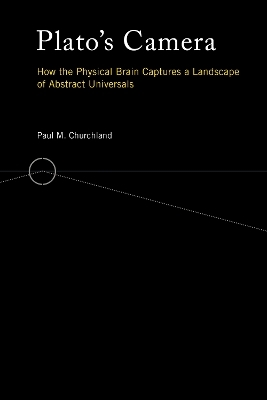
Plato's Camera
How the Physical Brain Captures a Landscape of Abstract Universals
Seiten
2013
MIT Press (Verlag)
978-0-262-52518-3 (ISBN)
MIT Press (Verlag)
978-0-262-52518-3 (ISBN)
- Titel ist leider vergriffen;
keine Neuauflage - Artikel merken
A noted philosopher draws on the empirical results and conceptual resources of cognitive neuroscience to address questions about the nature of knowledge.
In Plato's Camera, eminent philosopher Paul Churchland offers a novel account of how the brain constructs a representation-or "takes a picture"-of the universe's timeless categorical and dynamical structure. This construction process, which begins at birth, yields the enduring background conceptual framework with which we will interpret our sensory experience for the rest of our lives. But, as even Plato knew, to make singular perceptual judgments requires that we possess an antecedent framework of abstract categories to which any perceived particular can be relevantly assimilated. How that background framework is assembled in the first place is the motivating mystery, and the primary target, of Churchland's book.
Unexpectedly, this neurobiologically grounded account of human cognition also provides a systematic story of how such low-level epistemological activities are integrated within an enveloping framework of linguistic structures and regulatory mechanisms at the social level. As Churchland illustrates, this integration of cognitive mechanisms at several levels has launched the human race on an epistemological adventure denied to all other terrestrial creatures.
In Plato's Camera, eminent philosopher Paul Churchland offers a novel account of how the brain constructs a representation-or "takes a picture"-of the universe's timeless categorical and dynamical structure. This construction process, which begins at birth, yields the enduring background conceptual framework with which we will interpret our sensory experience for the rest of our lives. But, as even Plato knew, to make singular perceptual judgments requires that we possess an antecedent framework of abstract categories to which any perceived particular can be relevantly assimilated. How that background framework is assembled in the first place is the motivating mystery, and the primary target, of Churchland's book.
Unexpectedly, this neurobiologically grounded account of human cognition also provides a systematic story of how such low-level epistemological activities are integrated within an enveloping framework of linguistic structures and regulatory mechanisms at the social level. As Churchland illustrates, this integration of cognitive mechanisms at several levels has launched the human race on an epistemological adventure denied to all other terrestrial creatures.
Paul M. Churchland is Emeritus Professor of Philosophy at the University of California, San Diego. He is the author of The Engine of Reason, the Seat of the Soul, Matter and Consciousness: A Contemporary Introduction to the Philosophy of Mind (both published by the MIT Press), and other books.
| Reihe/Serie | Plato's Camera |
|---|---|
| Zusatzinfo | 12 color illus., 19 b&w illus., 15 line drawings |
| Verlagsort | Cambridge, Mass. |
| Sprache | englisch |
| Maße | 152 x 229 mm |
| Gewicht | 422 g |
| Themenwelt | Geisteswissenschaften ► Philosophie |
| Geisteswissenschaften ► Psychologie ► Allgemeine Psychologie | |
| Geisteswissenschaften ► Psychologie ► Verhaltenstherapie | |
| Naturwissenschaften ► Biologie ► Zoologie | |
| ISBN-10 | 0-262-52518-6 / 0262525186 |
| ISBN-13 | 978-0-262-52518-3 / 9780262525183 |
| Zustand | Neuware |
| Haben Sie eine Frage zum Produkt? |
Mehr entdecken
aus dem Bereich
aus dem Bereich
Techniken der Verhaltenstherapie
Buch (2024)
Julius Beltz GmbH & Co. KG (Verlag)
CHF 48,95


